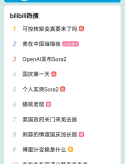One of China’s best-known economic hubs – manufacturing everything from C919 airliners to Tesla electric vehicles – Shanghai is less known for its production of rice, watermelons, peaches and vegetables. But even though its farmland is limited and its farming population is small, the sprawling city is consistently among the leading regions in China in grain yield per hectare. According to official data, Shanghai’s grain yield was around 7.54 tonnes per hectare last year, keeping it in second place nationally – just behind the Xinjiang Uygur autonomous region. From 2017 to 2022, it ranked first.
Shanghai’s success is based on its tech-driven, moderately scaled and quality-focused approach to urban farming, observers said. The model matters for China, home to 1.4 billion people and perennial food security concerns, and offers a template for raising farm efficiency nationwide, they said. An “automated farm” uses technologies including the Internet of Things, big data, artificial intelligence, 5G telecommunications and robotics to enable remote and fully automated operations with minimal human intervention.

